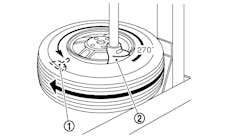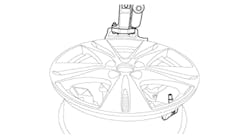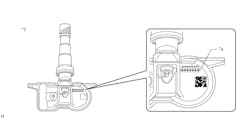Is someone knocking on your door to buy your business? If not, someone soon may. Mergers and acquisitions in tires are in high gear. Pep Boys is being acquired by a private equity, TBC is buying Midas Muffler, Monro Muffler Brake is buying Kramer Tire and wholesalers are being consolidated at a rapid pace. With the tire business having been a bit sluggish recently, those having strong financial strength (and possessing a long-term view) are seizing the opportunity to make acquisitions at what sellers believe are attractive prices while the buyers believe they are getting a bargain. I expect this trend to continue as long as the cost of money is so cheap. It is hard to give advice on whether or not you should sell out because each business has its own unique characteristics. What I can say is that the multiples of sales or EBITDA buyers are paying today are higher than ever. Your challenge – if you do sell your business – is where to put the after-tax proceeds because it will be difficult to replace the earnings of the business you are selling. On the other hand, your circumstances may present you with an opportunity to get more for your business than ever before. Strength in the tire business will eventually return; selling out is an irreversible decision. Think hard before you act.
Monthly survey
A number of independent tire dealers were surveyed concerning current business trends. Except for tire prices and costs, the results of the February 2012 survey are compared with those of February 2011.
Growing U.S., economy gives hope for the future
According to our dealer survey, roughly 47% of passenger tire dealers believe business will improve over the next six months while 47% believe it will stay about the same. The remaining 6% believe it will worsen. As for truck tire dealers surveyed, 57% see business staying about level while 43% see business improving. Improving U.S. economic conditions is the primary driver of optimism as month after month dealers site steady (but slow) growth. These outlook comments lend to be seasonally directed rather than year-to-year comparisons.
Flat volumes indicate U.S. growth in balance with high tire and fuel prices
According to dealer reports, on average, retail sales of new replacement passenger tires were flat when compared with February 2011. The biggest concern at this time last year was rising gas prices and this time around prices at the pump are even higher (February 2012 -- $3.58/gal. vs. February 2011 -- $3.20/gal.). Will a growing U.S. economy be enough to overcome high tire and gas prices? Right now it seems to be in balance with flat volume growth in February, but only time will tell. Truck tire sales increased 1% in February, despite higher diesel prices. Retreaded tire sales increased 9% in February after falling 3% last month. Surging raw material costs have lessened the odds of price decreases any time soon and perhaps has persuaded truck operators to retread instead.
Margins are getting tougher to hold for premium tires
In comparing the month of February 2012 with January 2012, average costs for size 215/60R16 major brand tires were up 1% while selling prices were down 2%. The average cost for a 215/60R16 private brand tire was up 1% while the selling price was up 2%. The resurgence of raw materials is causing manufacturers to revisit price hikes. Goodyear recently announced a price hike. Hankook has stated it is likely to increase prices and others may soon follow suit. Dealers had to give back pricing in premium tires, which further pressured margins, as consumer disposable income dwindles in the face of higher gas prices.
Pricing seen as a normal to very firm
In February 2012, 43% of passenger tire dealers saw pricing as normal while another 36% saw it as very firm. The remaining 21% saw it as aggressive. On the other hand, 67% of truck tire dealers saw pricing as very firm while 25% saw it as formal and 8% saw it as aggressive.
Lack of winter is creating high passenger tire inventories
The survey indicated that 50% of passenger tire dealers believed inventories were in line with current business levels, while 43% of surveyed dealers believed inventories were too high. The remaining 7% of dealers felt inventories were too low for current demand. Roughly 77% of truck tire dealers we surveyed indicated inventories were in line with current business levels, while 15% felt inventories were too high. The remaining 8% felt inventories were too low. Truck tire dealers continue to be operating at optimal inventory levels while passenger tire dealer inventories are a bit high. A lack of winter hwas caused winter tires to sit in the warehouse while spring time tires are likely at more appropriate levels.
Service revenues are strong and steady in an otherwise volatile market
Dealers who provide automotive service reported that 34% of revenues, on average, were generated by service during February. Dealers indicated that service business grew by 7% in February 2012 vs. February 2011. Service business has been great for most dealers as it has been a steady cash generator in an otherwise volatile tire market.
Analyst Saul Ludwig is a managing director with Northcoast Research Holdings LLC based in Cleveland, Ohio. He concentrates on the tire and chemical industries. He has been writing for Modern Tire Dealer since April 1975.




